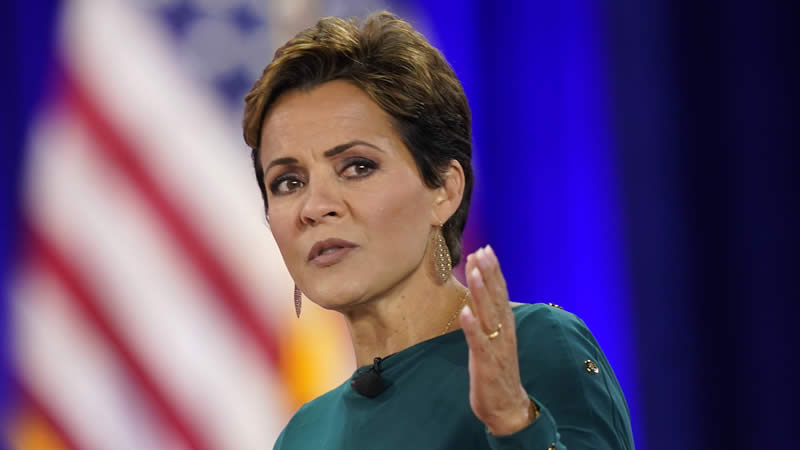Arizona Senate Race: Kari Lake Prepares for Possible Loss by Claiming Voter Fraud

(AP Photo/Ross D. Franklin)
As Election Night 2024 unfolded, all eyes were on Arizona’s high-stakes U.S. Senate race, where Rep. Ruben Gallego, a Democrat, is vying against Kari Lake, a far-right MAGA Republican, for the seat vacated by independent Sen. Kyrsten Sinema. With most polls indicating Gallego as the frontrunner, Lake has been preparing for the possibility of defeat by leaning into a familiar tactic: claims of voter fraud.
Lake, known for her vocal stance on election integrity, has been advancing baseless allegations that her previous run for Arizona governor was stolen through widespread fraud. Despite no evidence to support these claims, Lake has maintained her assertion, insisting that Democratic Gov. Katie Hobbs’ victory in that race was fraudulent. However, former Arizona Governor Doug Ducey has publicly countered Lake’s claims, affirming that Hobbs’ win was entirely legitimate and pointing to Arizona’s robust election security.
David Gilbert of Wired reports that Lake’s response to potential loss in the Senate race mirrors her approach from the gubernatorial campaign, furthering unsubstantiated theories of election rigging. Lake’s persistent rhetoric around election denial has made her a prominent figure among those who believe the 2020 presidential election was compromised, despite numerous investigations debunking those claims. “She has built an entire political personality on the back of promoting debunked election conspiracy theories,” Gilbert explains, highlighting the central role that election denial has played in her political image.
This narrative has resonated with a segment of Lake’s base, particularly those inclined to distrust mainstream election processes. Gilbert notes that Lake “remains convinced that the election will be stolen,” even as she faces a Senate race outcome that most polls suggest will not be in her favor. By preemptively framing any potential loss as fraudulent, Lake seeks to galvanize her supporters and cast doubt on Arizona’s election system.

Lake’s stance has drawn both support and criticism. While some supporters continue to rally around her claims, critics argue that her refusal to accept election results undermines faith in Arizona’s democratic institutions. This dynamic mirrors the tensions that followed the 2020 presidential election, where unfounded allegations of fraud created widespread distrust. Observers worry that Lake’s rhetoric could further polarize Arizona voters, particularly if she refuses to concede if the results do not go her way.
Gallego, meanwhile, has largely focused his campaign on policy issues and has not engaged in Lake’s claims of election fraud. As a Democrat, he has campaigned on issues such as healthcare, economic development, and climate change, presenting himself as a steady alternative to Lake’s polarizing rhetoric. His lead in the polls has been a source of optimism for Democrats, who view a Gallego victory as a potential buffer in the Senate.
As Arizona’s election results are tallied, Lake’s response will be a defining factor in the race’s aftermath. If she continues to insist the race was “stolen” in the face of an apparent defeat, it could stoke further controversy, reflecting the deep divisions in Arizona politics and the challenges in restoring trust in the electoral process. For now, both the state and the nation are watching closely as Arizona’s Senate race serves as a microcosm of the broader ideological battles playing out in American politics.


